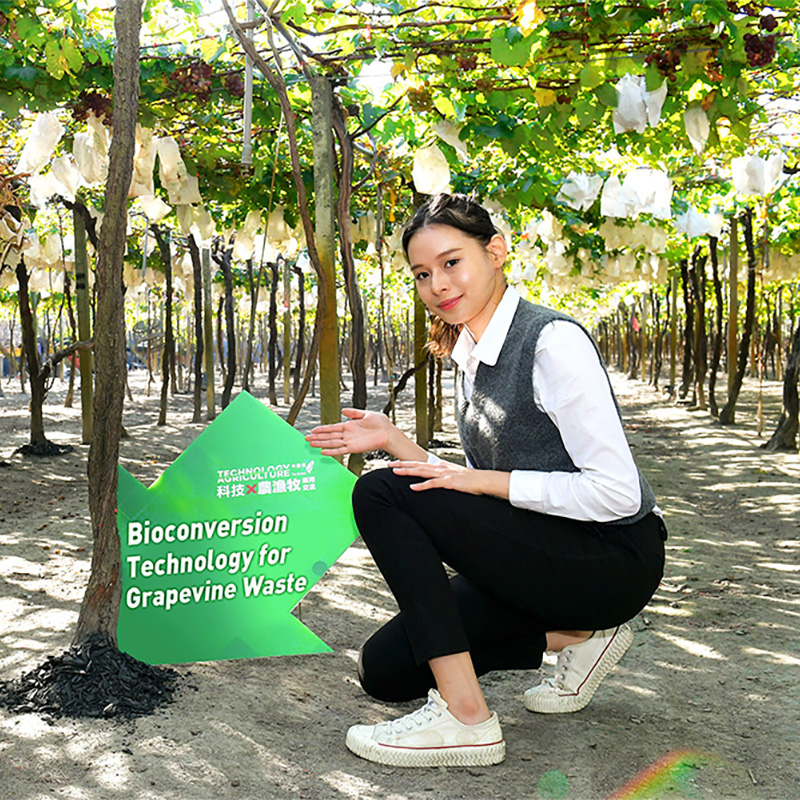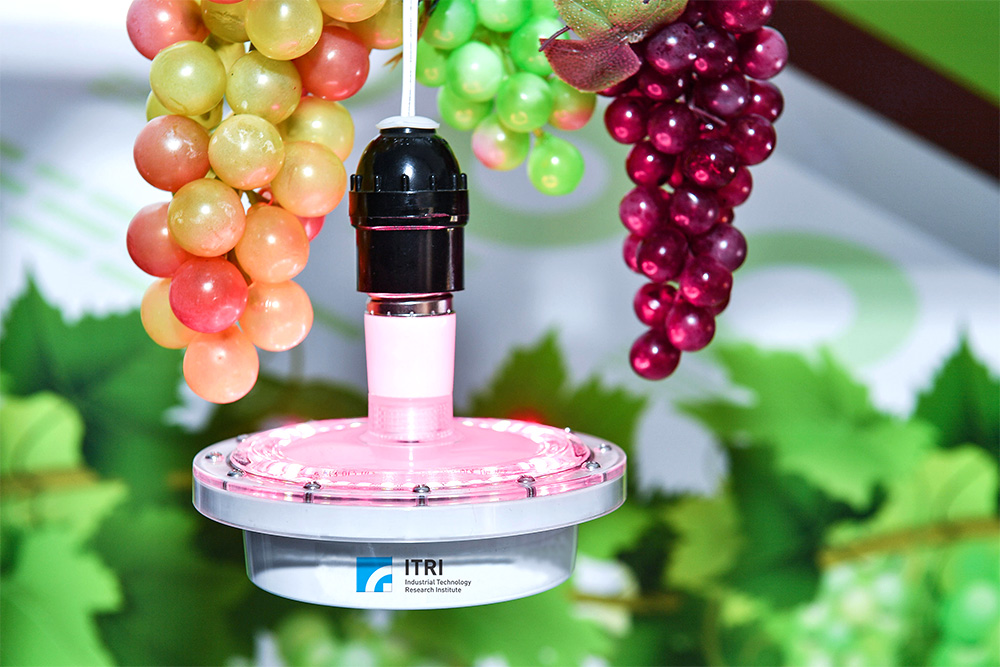Spotlight
Grapes & Green Tech: Agro-Tech Reshaping Vineyard Cultivation
Grape wine has long been one of the most beloved alcoholic beverages worldwide, with continuously rising demand around the globe. Productivity in vineyards, however, is facing challenges due to climate change and the declining and aging rural population. Furthermore, consumers are showing a growing interest in wines that are environmentally responsible.
To address these issues, ITRI has proposed a solution that integrates three of its green technologies: ecological material production equipment, intelligent LED illuminating modules, and hybrid unmanned vehicles for pesticide spraying. The outcome not only enhances grape harvest and product value but also saves energy and reduces carbon emissions within the sector.
Transforming Pruning Waste into Valuable Ecological Materials

Vine prunings are transformed into biochar and vinegar that can protect roots, promote soil quality, and repel insects and diseases.
Erlin Township has the highest density of wine grape cultivation and wineries in Taiwan. One of its most important annual activities is the removal of old wood and other pruning residues, which come in large volumes. The most common disposal method for these pruning wastes is burning, but this approach not only causes air pollution but also increases carbon footprints.
ITRI and the local government have therefore co-developed ecological material production equipment which can transform pruning wastes into value-added vinegar and functional biochar. The vinegar serves both as soil fertilizer and insect repellent, enhancing soil quality while reducing the use of pesticides. The functional biochar, with its far-infrared properties, protects grapevine roots from cold damage and significantly mitigates the impact of winter on harvests. With this technology, Erlin alone has reduced its annual carbon emissions by approximately 56,000 metric tons.
Smart Lighting to Boost Sweetness & Conserve Energy
In addition to its efforts in vineyard debris processing, ITRI has developed an intelligent LED illuminating module for fruit optimization. This illuminating system incorporates intelligent circuits that enable growers to adjust the light intensity and spectrum based on grapes’ different growth stages. By utilizing this system, wine grapes’ sweetness level, typically around 15 to 17 degrees, can be raised to above 20 degrees, resulting in wines with more pronounced and captivating flavors. Moreover, farmers using this system can enhance grape yield and quality without the need to constantly replace lamps, while cutting the electricity bill by half, as this system consumes over 50% less power compared to traditional light sources. Apart from its application in vineyards, this system has also been employed in cultivating eustoma, Taiwan’s largest export flower. This technology not only boosted the number of buds per spur by 50% but also enabled farmers to adjust their production and shipment cycles based on market price fluctuations.

The intelligent LED illuminating module provides different lighting to enhance fruit sweetness while lowering growers’ electricity bill.
Hybrid Unmanned Vehicle Enhancing Labor Productivity
Recognizing the physical burden on grape farmers, ITRI has introduced a gasoline-electric hybrid vehicle for pesticide spraying. This vehicle can be operated remotely at a distance of over 100 meters and has a load capacity of 500 kilograms of pesticides. In addition to efficient remote pesticide application, the vehicle also allows for precise spraying. The operator can monitor the process through a screen and adjust the spray boom’s height accordingly. In about 15 minutes, the vehicle can cover an area of approximately 970 square meters, significantly enhancing productivity and efficiency in grape farming.